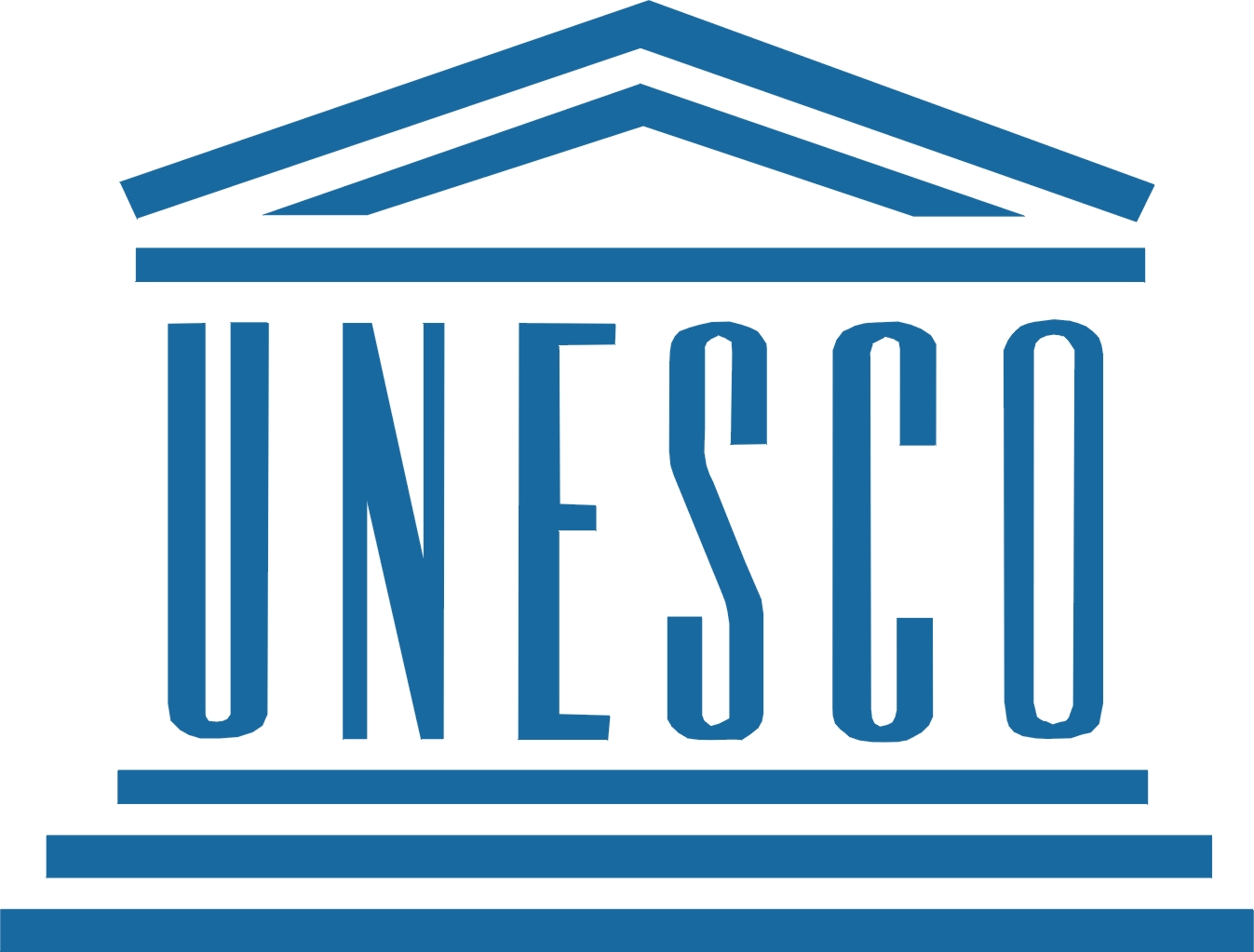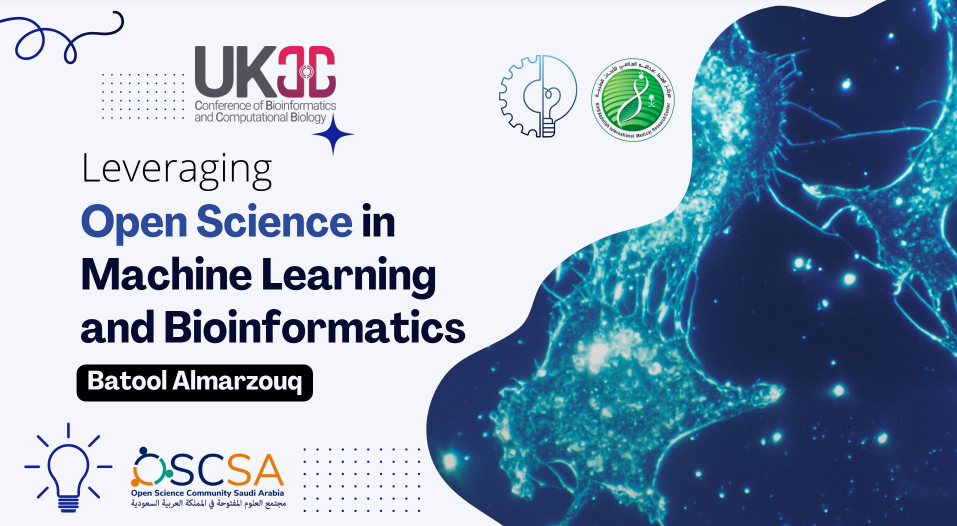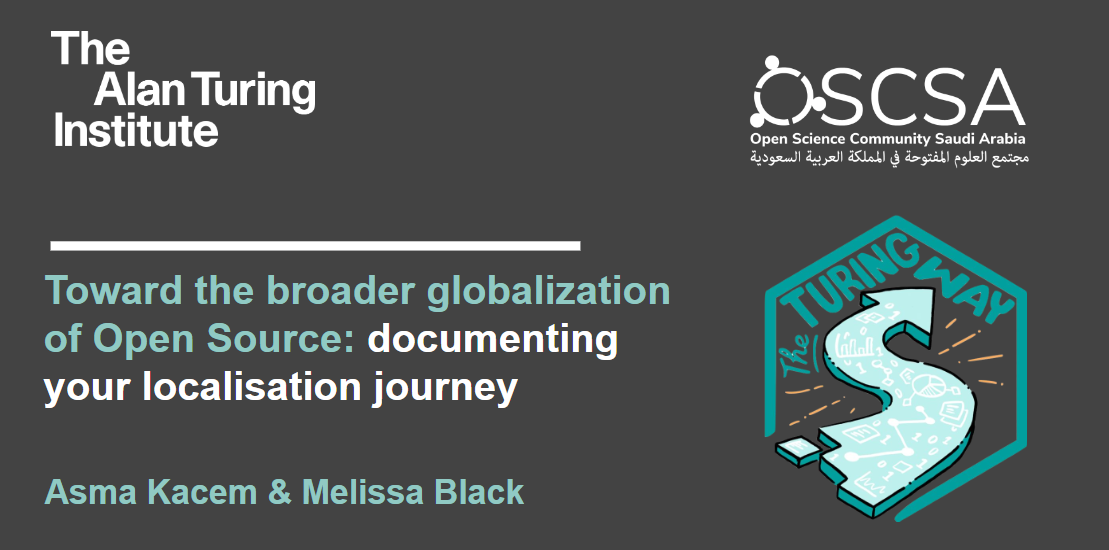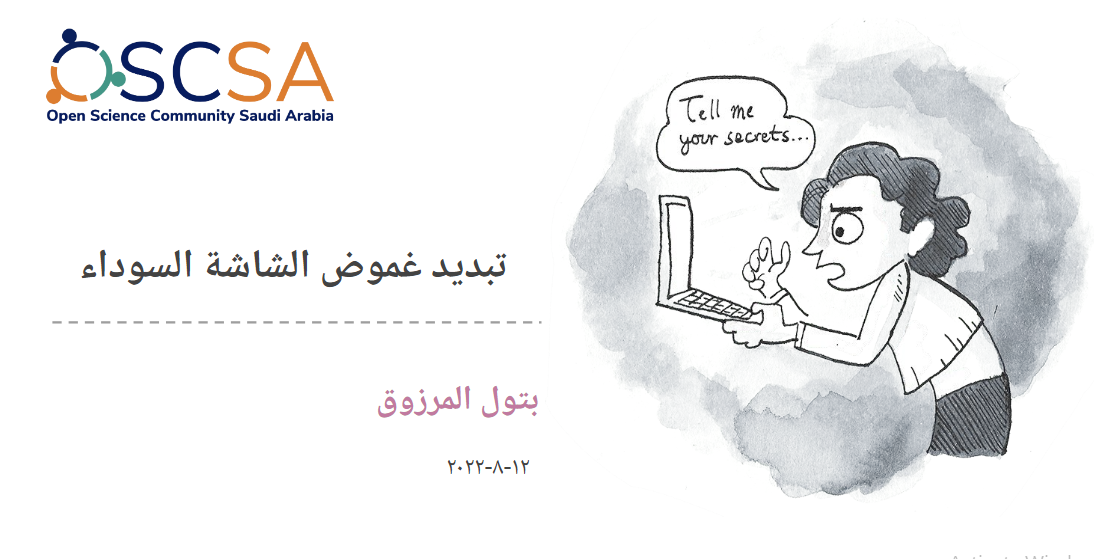About Us
Open Science community Saudi Arabia (OSCSA) was established in line with Saudi Arabia’s Vision 2030, which focuses on installing values, enhancing knowledge and improving equal access to education. It aims to provide a place where newcomers and experienced peers interact, inspire each other to embed open science practices and values in their workflows and provide feedback on policies, infrastructures and support services. Our community is part of the International Network of Open Science & Scholarship Communities (INOSC).

What is Open Science?
"Open Science describes an on-going movement in the way research is performed, researchers collaborate, knowledge is shared, and science is organised. It affects the whole research cycle and its stakeholders, enhances science by facilitating more transparency, openness, networking and collaboration."1. [OpenAIRE]↩
Why Join our Community?
Learn about Open Science practices through our Workshops.Support to lead your own project, and provide more visibility and discoverability for your work.
OSCSA helps you to get connected with like-minded people from other communnities that adopts Open Science practices (e.g. Turing Way, Carpentries, ArabR, ...).
Subscribe to our OSCSA mailing list.
Who Can Join?
We welcome everyone regardless of their knowledge on Open Science. Please fill out this form with instructions on how to join.Open Science Practices
Open Science (OS) is a an umbrella term that used to describe movements and practices aimed at increasing the accessibility of scientific knowledge and fostering innovations. In order to demistyfy these principles, we describe briefly six of its core components.
Open Source
Open source software is code that is designed to be publicly accessible. Prime examples include Linux, Firefox & Android
Open License
Open Work is protected by Open License, which states how the work can be used, modified, adopted and commercialised.
Open Hardware
Open source hardware is hardware that is built based on principles analogous to open source software
FAIR Principles
The FAIR principles describe how research outputs should be organised so they can be more easily accessed, understood, exchanged and reused. 2. [OpenAIRE]↩
Open Educational Resources
They are any learning and research materials that reside in the public domain or under an open license. 3. [UNESCO]↩
Open Accesss
Open Access refers to online, free of cost access to peer reviewed scientific content with limited copyright and licensing restrictions. 4. [FOSTER]↩
Click on individual topics to be directed to a short translated video (< 10 mins) from The Open Life Sciences Program. We continuously aims to improve the translation. If you wish to join the translation working group, don't hesitate to contact us.
FAIRfication in Arabic Speaking Countries
We are taking part in the CS&S Digital Infrastructure Incubator to explores the cultural infrastructure components for the contextualization of the FAIR principles in Arabic-speaking countries. Take part of this project and support our work by completeing one minute survey. !
UNESCO Recommendation on Open Science
The UNESCO recentely published its recommendation on Open Science, which was adopted by the 41st session of UNESCO General Conference in November 2021. You can read the UNESCO Recommendation on Open Science here.

 Supporting scientists and other societal actors
in accumulating and using open data resources in a transdisciplinary mode to maximize scientific,
social, economic and cultural benefits, and stimulate the creation of hybrid disciplinary
collaborative spaces where scientists from different disciplines interact with software developers,
coders, creatives, innovators, engineers and artists, among others.
Supporting scientists and other societal actors
in accumulating and using open data resources in a transdisciplinary mode to maximize scientific,
social, economic and cultural benefits, and stimulate the creation of hybrid disciplinary
collaborative spaces where scientists from different disciplines interact with software developers,
coders, creatives, innovators, engineers and artists, among others. 
Materials
All our talks, workshops and training courses are under CC-BY license and accessible in Zenodo. Any code associted with these materials is included in our GitHub organisation account!
Funders


Events
Contact Us
Please feel free to contact us on admin@openscisaudi.com or using this form



